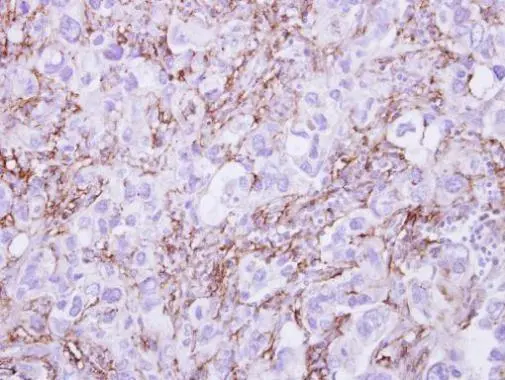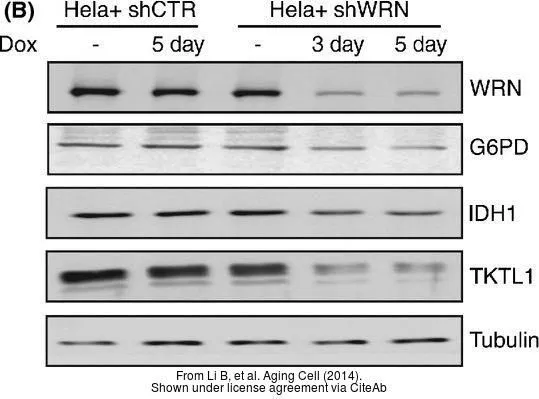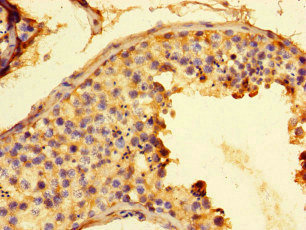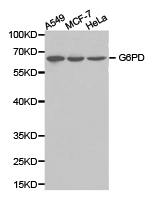
G6PD antibody detects G6PD protein at cytosol on human breast cancer by immunohistochemical analysis. Sample: Paraffin-embedded breast cancer. G6PD antibody (GTX101212) dilution: 1:500.
Antigen Retrieval: Trilogy? (EDTA based, pH 8.0) buffer, 15min
G6PD antibody
GTX101212
ApplicationsWestern Blot, ImmunoHistoChemistry, ImmunoHistoChemistry Paraffin
Product group Antibodies
ReactivityHuman
TargetG6PD
Overview
- SupplierGeneTex
- Product NameG6PD antibody
- Delivery Days Customer9
- Application Supplier NoteWB: 1:500-1:3000. IHC-P: 1:100-1:1000. *Optimal dilutions/concentrations should be determined by the researcher.Not tested in other applications.
- ApplicationsWestern Blot, ImmunoHistoChemistry, ImmunoHistoChemistry Paraffin
- CertificationResearch Use Only
- ClonalityPolyclonal
- Concentration6.37 mg/ml
- ConjugateUnconjugated
- Gene ID2539
- Target nameG6PD
- Target descriptionglucose-6-phosphate dehydrogenase
- Target synonymsCNSHA1, G6PD1, glucose-6-phosphate 1-dehydrogenase, epididymis secretory sperm binding protein
- HostRabbit
- IsotypeIgG
- Protein IDP11413
- Protein NameGlucose-6-phosphate 1-dehydrogenase
- Scientific DescriptionThis gene encodes glucose-6-phosphate dehydrogenase. This protein is a cytosolic enzyme encoded by a housekeeping X-linked gene whose main function is to produce NADPH, a key electron donor in the defense against oxidizing agents and in reductive biosynthetic reactions. G6PD is remarkable for its genetic diversity. Many variants of G6PD, mostly produced from missense mutations, have been described with wide ranging levels of enzyme activity and associated clinical symptoms. G6PD deficiency may cause neonatal jaundice, acute hemolysis, or severe chronic non-spherocytic hemolytic anemia. Two transcript variants encoding different isoforms have been found for this gene. [provided by RefSeq]
- ReactivityHuman
- Storage Instruction-20°C or -80°C,2°C to 8°C
- UNSPSC41116161







